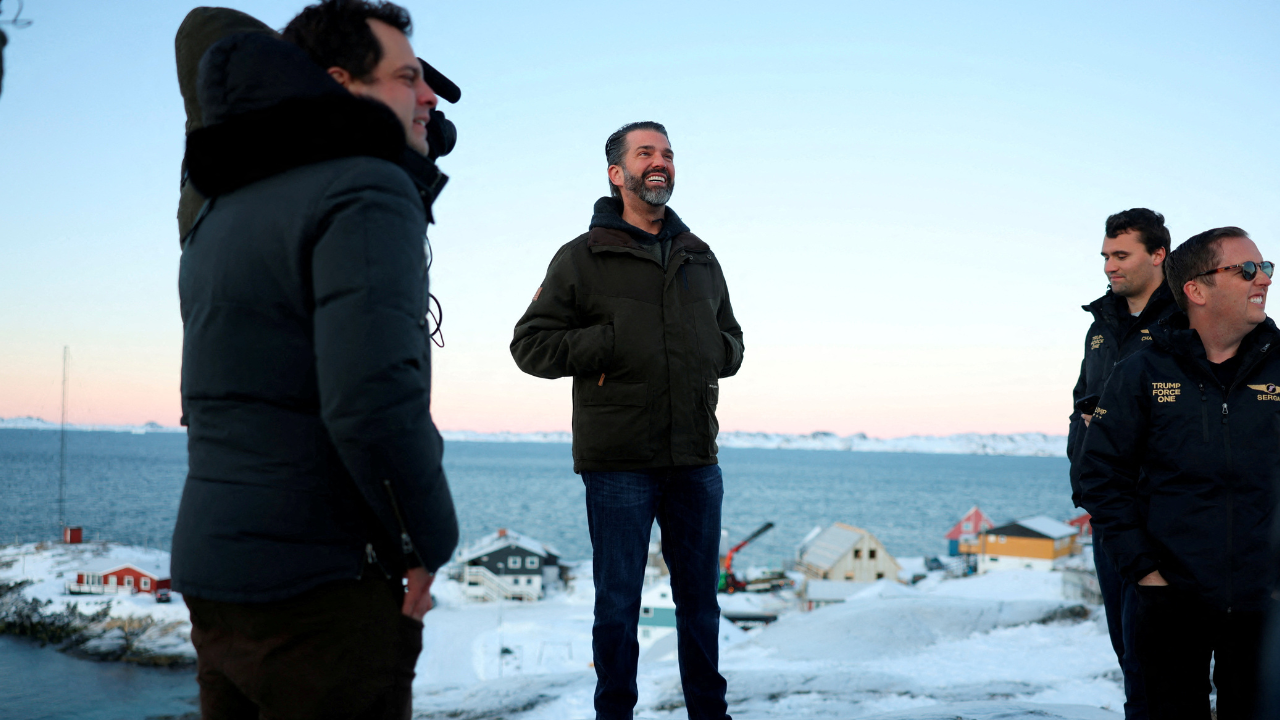A few weeks after being elected President for a second time, Donald Trump made a startling declaration. Choosing to announce the appointment of a new ambassador to Denmark on Truth Social, the president-elect added that: “For purposes of National Security and Freedom throughout the World, the USA feels that the ownership and control of Greenland is an absolute necessity.”
This followed comments made a day earlier while in Arizona. “The fees being charged by Panama are ridiculous, highly unfair; this complete rip-off of our country will immediately stop.” If shipping rates were not lowered, said Trump, “we will demand that the Panama Canal be returned to us, in full, quickly and without question.”
After refusing to rule out the use of force against Panama to retake the canal, and claiming he had the “economic force” to make Canada become part of the US, Trump spoke about promising to “tariff Denmark at a very high level” if it did not hand over Greenland to the US.
Some might try to argue that Trump is transactional and that threats like this — as with those about tariffs — are simply ways to restructure terms of deals and to balance the table in favour of US national interests. But that is not how it is understood in parts of the world I work on, where statements about territorial expansion, recolonisation and the use of force are followed closely because they offer pathways to local ambitions: if the US says it needs Greenland for ‘national security’, can China say the same for Taiwan? Or Russia for Ukraine and the Baltic states? Or for states in the Middle East? What about the complex set of claims across South Asia?
While Trump’s comments are controversial, they are not new. He first expressed interest in buying Greenland in 2019 when he was president. Trump was taken with the idea of a ‘large real estate deal.’ He was less pleased, however, when the Danish PM called his putative offer “absurd”. Trump reacted badly, cancelling a visit to the country. “I thought it was an inappropriate statement. All she had to do is say no, we wouldn’t be interested,” he said.
But Trump is merely the latest in a long line of Americans to cast an eye towards Greenland and for that matter, the latest in a long line of Americans wanting to use their wallet to expand the size of the US. In the 19th century, the territory of US grew dramatically. Sometimes through force (such as the annexation of Texas at Mexico’s expense); but often it was through acquisition. The most famous two examples were the Louisiana Purchase, where the US bought almost one million square miles from France for $15m. To put that in perspective, that is around three-quarters of the size of India. Then in 1867, the US bought more than half a million square miles of Alaska from the Russian empire — this time for $7.2m.
Around the same time, there were efforts to buy Greenland from the Kingdom of Denmark — efforts that resurfaced early in the 20th century and then again after the end of World War II. In April 1946, state department official John Hickerson noted that in a planning and strategy committee of the joint chiefs of staff “practically every member…said that our real objective as regards to Greenland should be to acquire it by purchase from Denmark.” The committee stated that owning Greenland could be classed as a “military necessity”. So, Trump’s statement this week that “people have been talking about it for a long time” was accurate.
What, then, happens next?
The Danes rushed to announce that an additional 1.3 billion euros would be spent on Greenland and its defence — which they claim is unrelated to Trump’s comments. The fact though that the royal coat of arms of Denmark was changed last month, with much greater prominence given to Greenland and to the Faroe Islands (another of Denmark’s autonomous territories) is revealing.
In the coming months, elections will be held in Greenland. It seems likely that they will be the prelude to the island becoming an independent state, something its Prime Minister Mute Egede spoke about in his New Year speech. “It is time for us to take a step ourselves and shape our future,” he said. A draft constitution has also been prepared.
Trump is not the catalyst for whatever decisions get made by the people of Greenland — who number marginally more than the crowd at an average IPL game. But American interest will lead to an investment bonanza for Nuuk (Greenland’s capital) as well as for the mineral-rich island as a whole. That is why Donald Jr, the President’s son, flew in on Tuesday to survey the scene.
Many believe Trump Jr’s Greenland trip was an unofficial survey
The world is changing rapidly, with disruption and uncertainty seeming to lurk everywhere. Challenges, of course, also bring opportunities — but you need to be brave, lucky and smart to grab the latter and not fall foul of the former.
Disclaimer
Views expressed above are the author’s own.
END OF ARTICLE

